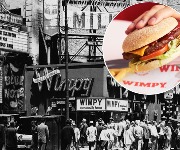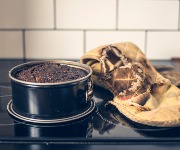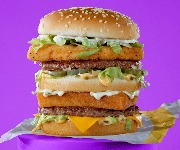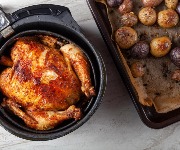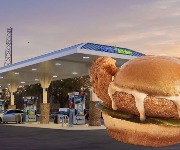The secret cloned meat in your food
Breakdown in EU talks mean the UK could be flooded with meat and dairy from the offspring of cloned animals.
Earlier this month, the European Parliament and the Council of the European Union met to discuss new legislation that looks at the sale of meat and dairy from the offspring of cloned animals.
Rather than coming to an agreement, they came to blows, marking an unsatisfactory ending to three years of negotiation.
Novel Foods
The meeting in Brussels was looking to revise the Novel Foods Regulation. The main aim was to improve the access of new and innovative foods to the EU market while maintaining high levels of consumer protection.
Firstly, let’s clear up exactly what ‘novel’ foods are. The EU defines novel foods as: “Food and food ingredients that have not been used for human consumption to a significant degree within the European Community before 15 May 1997.”
The argument was over whether products derived from the offspring of cloned animals should be labelled as such. This is something that clearly comes under the umbrella of ‘consumer protection’.
What started all of this?
Cloning has always been a controversial topic, but debate was sparked again last year when meat from the offspring of a cloned animal found its way into the food chain. A dairy farm in Scotland used imported embryos from a cloned bull in the States to breed animals on its UK farm and sold the meat to the British public.
Scary stuff, many people thought and highlighted the need for clearer legislation on the matter.
Unfortunately, after the recent EU talks, things are still as murky as ever.
Who wanted what?
The European Council wanted to allow products from the offspring of cloned animals into the EU market. The European Parliament, however, wanted to impose a mandatory labelling system so the consumer knows exactly what he or she is buying.
Parliament members Gianni Pitella and Kartika Liotard said in a statement: “We made a huge effort to compromise but we were not willing to betray consumers on their right to know whether food comes from animals bred using clones.
“Since European public opinion is overwhelmingly against cloning for food, a commitment to label all food products from cloned offspring is a bare minimum.”
Sandor Fazekasm, the Hungarian rural development minister, opposed the call for compulsory labelling, branding it a “misleading, unfeasible solution that in practice would have required drawing a family tree for each slice of cheese or salami”.
What does the outcome mean?
Failing to reach a decision means that the 1997 ruling on novel foods remains in place. There is no outright ban on using products from cloned animals and their offspring, but the criteria for sale are incredibly tough. The Food Standards Agency, however, has said it’s convinced that such foodstuffs were safe and that the rules restricting their sale are expected to be relaxed within months.
Argument for cloned meat on the market
Brenda Curran, a geneticist at Queen Mary University of London, has been looking into the issue of cloning. She revealed that the findings were in line with studies by the US Food and Drug Administration which ruled in 2008 that products from cloned cattle and their offspring were indistinguishable from those from ordinary animals.
Her sentiments are echoed by European health commissioner, John Dalli, and both the Ulster Farmer’s Union and the NFU Scotland. They say they do not see any reason to label products from the offspring of cloned animals.
Interestingly, Caroline Spelman, the Environment Secretary, opposed new controls and labelling – but not on safety grounds. She believes it could ignite a trade war with the US, Argentina and Brazil where cloned animals are routinely farmed and their products sold commercially.
The EU imports 300,000 – 500,000 tonnes of beef every year, much of it coming from the aforementioned countries. Although they authorise cloning, there is no system in place to trace clone derived meat.
If legislation for mandatory labelling was put in place, this would put huge obstacles in the way of importing from some of the EU’s biggest suppliers.
In other words, you’ve may have already eaten imported meat that is the offspring of cloned animals, and simply not realised it.
Argument against
Huge opposition has come from animal welfare groups such as Compassion in World Farming.
Chief policy advisor, Peter Stevenson, sees the debate over allowing cloned products into the food chain as part of a much wider argument concerning the standards of European farming. “Are we going to move away from factory farming towards an agriculture that respects the wellbeing of animals and is in tune with nature?” he asks. “Or, are we going to pursue a high tech future that seizes on each new invention that emanates from the biotech laboratories, irrespective of the suffering inflicted on our farm animals?”
Perhaps the most significant opposition comes from the all important link between suppliers and consumers: the supermarket. Sarah Cordey from the British Retail Consortium, has said, “shops have no interest in selling meat or dairy products from clones animals or their offspring because customers clearly do not want to buy it.”
Tesco, Morrisons, Waitrose, Asda, Sainsbury’s, Marks and Spencer and the Co-operative all agreed that they would not sell meat or dairy from cloned animals or their offspring.
A consumer’s view
What do you think of all this? Personally, I can’t remember the last time I bought a piece of beef and I have to admit that when I did, the thought that I might be eating cloned meat hadn’t crossed my mind. The more I think about it, however, the more unsettling I find it.
We have a right to know what it is that we are buying. Animal cloning is such a controversial topic, that to allow such products into the food chain without informing the consumer is unacceptable. And if this means addressing all the meat we import, then so be it. A logistical nightmare, yes, but one that is necessary.
Think of all the food labels that have come into existence in recent years – we now know the country of origin of our food, its nutritional value, whether eggs are free range or battery farmed. Surely knowing whether you are eating something from a cloned animal ranks pretty highly on the list of important things to know?
Whether you agree with cloning or not, whether you would able to taste the difference or not, I think we deserve to know what we are eating.
What do you think?
Would you care if you were eating cloned meat? Do you think we have a right to know or are you happy to remain in the dark? We want to hear your comments!
Also worth your attention
Yuck! Human breast milk produced from cows
Most Recent
Comments
Be the first to comment
Do you want to comment on this article? You need to be signed in for this feature

